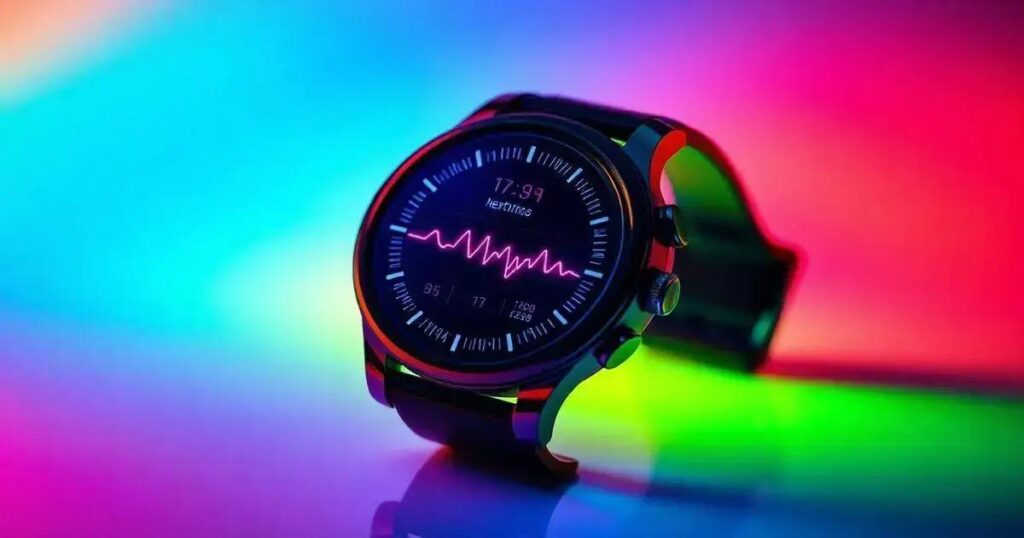Monitoring heart health with wearable technology involves using devices like smartwatches and fitness trackers to track heart rate, detect irregularities, and provide insights into overall health, empowering users to make informed lifestyle choices.
In today’s fast-paced world, monitoring heart health with wearable technology has become essential for maintaining a healthy lifestyle. These innovative devices empower you to track vital signs, understand your body better, and make informed health decisions. This article will guide you through the benefits of wearable technology, the top devices available, and tips to effectively use them in your daily life.
Understanding Wearable Technology
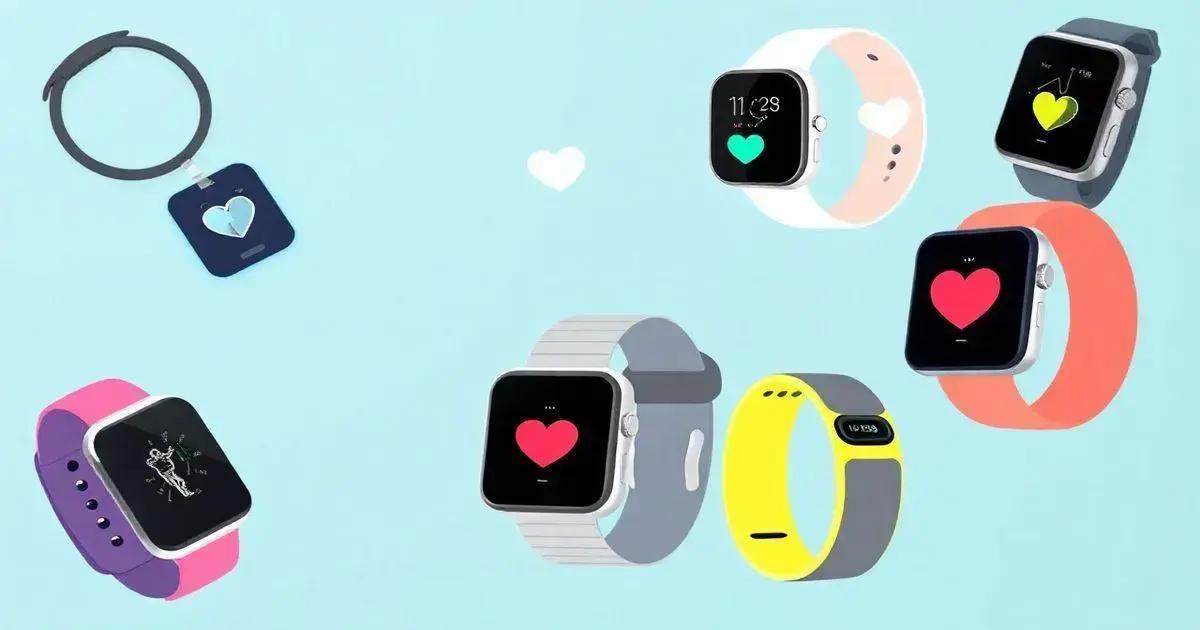
Wearable technology refers to electronic devices that can be worn on the body, often integrated into clothing or accessories. These devices are designed to track, monitor, and provide feedback on various aspects of health and fitness. They range from smartwatches that display notifications to specialized fitness trackers that monitor heart rate and sleep patterns.
How Wearable Technology Works
Most wearable devices use sensors to gather data from your body. For heart health, these sensors record your heart rate, rhythm, and even your blood oxygen levels. Data from these sensors is then sent to a connected smartphone or computer. Here, it is analyzed and presented in a user-friendly manner, allowing individuals to better understand their health metrics.
Types of Wearable Devices
There are several types of wearable devices available. Smartwatches like the Apple Watch or Samsung Galaxy Watch not only keep track of heart rate but also provide notifications and apps to enhance user experience. Meanwhile, dedicated fitness trackers like Fitbit focus on physical activity and health metrics. Each type of device has its own features suited for different user needs.
Importance of Monitoring Heart Health
Monitoring heart health is crucial for preventing potential medical issues. Wearable technology provides real-time data, enabling users to recognize irregular patterns in their heart health and take timely action. For example, some wearables can alert you to abnormal heart rates, prompting you to consult a healthcare professional.
The Future of Wearable Technology
The future of wearable technology is bright, with advancements in artificial intelligence and machine learning improving data accuracy and usability. New features are constantly being developed, such as ECG monitoring and hydration level tracking. As technology progresses, these devices will likely become even more integral to our daily health management.
The Benefits of Monitoring Heart Health
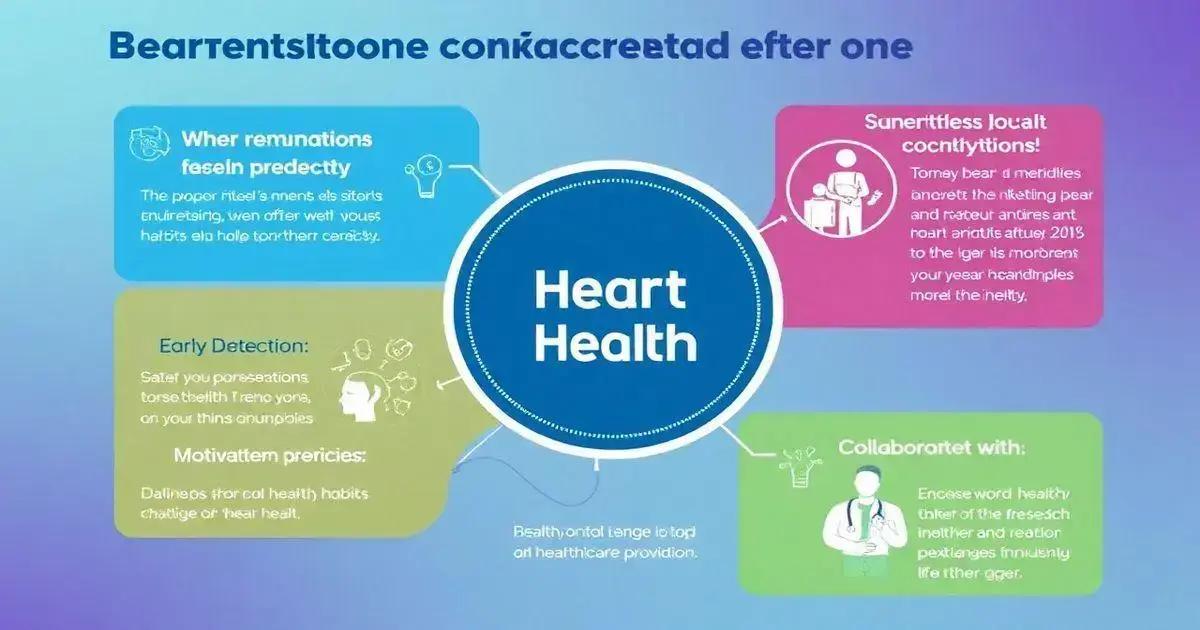
Monitoring heart health offers several important benefits for overall well-being. First and foremost, it can help detect early signs of heart problems. Regular tracking can alert you to irregular heartbeats or abnormal changes in your heart rate, allowing for timely medical interventions.
Better Understanding of Your Health
When you monitor your heart health, you gain a clearer picture of your cardiac condition. This data empowers you to understand how your lifestyle impacts your heart. For instance, you may notice correlations between your daily activities, stress levels, and your heart rate.
Motivation for Healthy Habits
Having access to heart health data can motivate you to make healthier choices. Seeing your progress in real-time can encourage better eating, more exercise, and adequate rest. When you mindfully engage with your heart health data, you may find yourself more inclined to stick with healthy habits.
Engagement with Healthcare Providers
Wearable technology allows you to share your heart health information with doctors and health professionals. This collaboration can lead to more customized care and better health outcomes. Your healthcare provider can assess the data you collect, providing personalized advice that aligns with your unique health needs.
Enhanced Awareness of Stress and Sleep
Monitoring your heart health can also shed light on your stress and sleep patterns. Many wearables track sleep quality and stress levels alongside heart metrics. By becoming aware of these factors, you can make informed adjustments to your routine for enhanced wellness.
Top Wearables for Heart Health
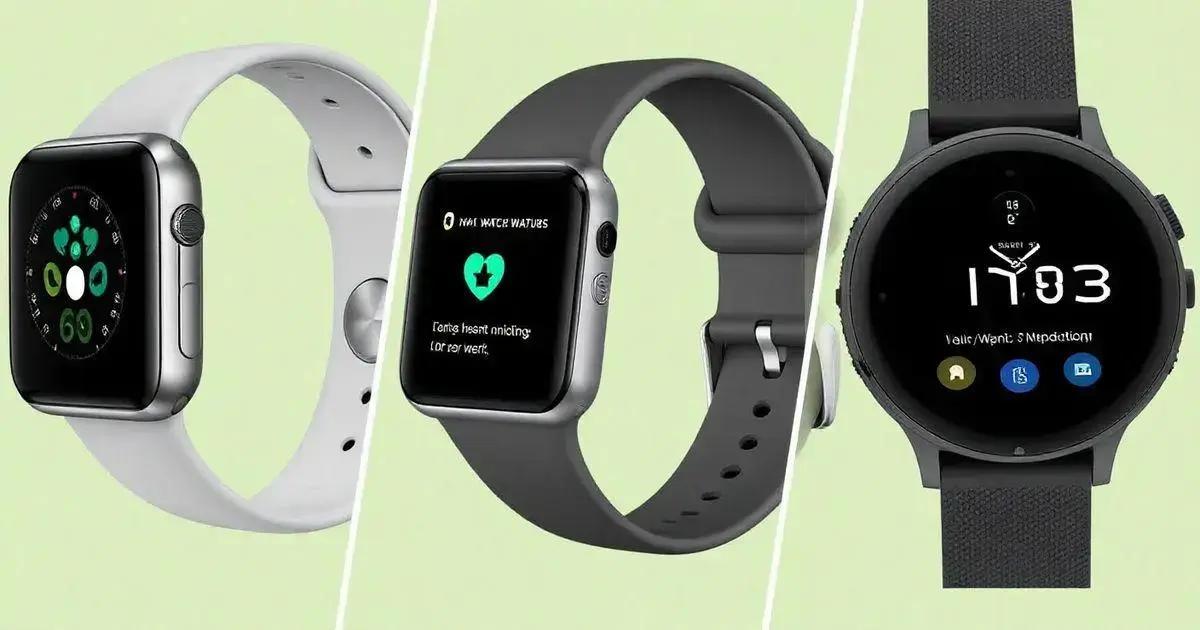
When it comes to monitoring heart health, several top wearable devices stand out for their accuracy and features. These devices not only track your heart rate but also offer additional metrics for comprehensive health management.
1. Apple Watch Series 8
The Apple Watch Series 8 is renowned for its advanced heart monitoring features. It tracks heart rate, irregular rhythms, and incorporates ECG functionality. With the Health app, users can view trends and share data with healthcare professionals.
2. Fitbit Charge 5
Fitbit’s Charge 5 is a popular fitness tracker that includes built-in heart rate monitoring. It provides daily readiness scores and workouts tailored to users’ heart health levels. The stress management features also help keep track of your overall wellness.
3. Garmin Venu 2
The Garmin Venu 2 combines advanced heart health tracking with fitness capabilities. This smartwatch offers heart rate variability, sleep tracking, and even blood oxygen saturation monitoring. The long battery life makes it perfect for all-day heart monitoring.
4. Samsung Galaxy Watch 5
The Samsung Galaxy Watch 5 offers a feature-rich experience with continuous heart rate monitoring and wellness tracking. It includes ECG features and provides insights on stress levels and sleep quality, helping users maintain a balanced lifestyle.
5. Polar H10 Heart Rate Sensor
The Polar H10 is a dedicated heart rate monitor that provides precise heart rate data during workouts. It syncs with various devices, making it versatile for fitness enthusiasts who require detailed heart health insights.
Tips for Using Wearable Tech Effectively
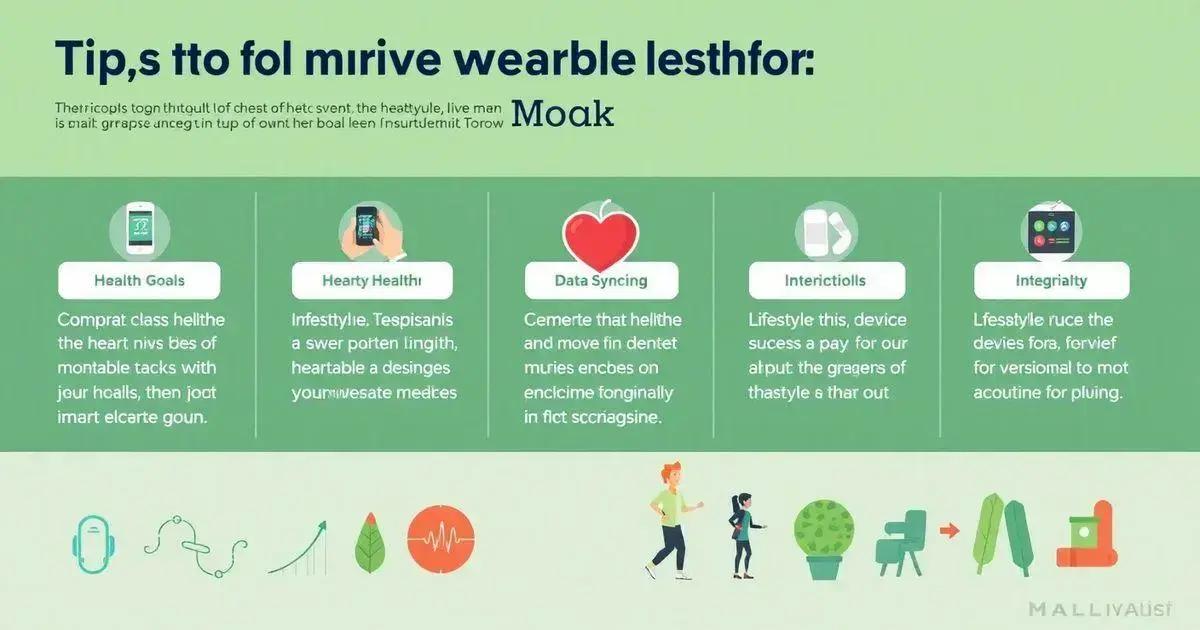
Using wearable technology effectively can enhance your experience and help you achieve your heart health goals. Here are some practical tips to make the most out of your device.
1. Set Clear Goals
Decide what you want to achieve with your wearable. Setting specific, measurable goals, such as tracking daily heart rates or monitoring exercise intensity, can provide motivation.
2. Regularly Sync Your Data
Ensure that your wearable device syncs frequently with its companion app. This allows you to receive the latest metrics and insights, helping you stay updated on your progress.
3. Customize Alerts and Notifications
Adjust the settings on your device to receive relevant alerts. For example, enable notifications for high or low heart rates to quickly respond to any concerns.
4. Keep the Device Charged
Regularly charge your wearable to ensure it is ready for use when you need it. Many devices come with battery-saving modes, so use these features to extend battery life.
5. Combine with Other Healthy Habits
Wearable tech is most effective when combined with a healthy lifestyle. Along with monitoring heart health, adopt healthy eating habits and regular physical activity. This will improve overall wellness.
6. Share Data with Healthcare Providers
Don’t hesitate to share your wearable data with doctors. This information can help them make better-informed decisions about your heart health and recommend personalized care.
In summary, monitoring your heart health with wearable technology offers transformative benefits
These devices provide valuable insights into your heart’s activity, enabling early detection of potential issues and motivating healthier lifestyle choices.
By understanding how wearable technology works, exploring top devices available, and applying effective usage tips, you can leverage these tools to significantly improve your overall health.
As you integrate wearable tech into your routine, remember to share your data with healthcare providers for personalized care and guidance.
This collaboration can lead to better health outcomes and a deeper understanding of your heart health journey.
FAQ – Frequently Asked Questions about Monitoring Heart Health with Wearable Technology
What is wearable technology?
Wearable technology includes electronic devices that you can wear on your body to track various health metrics, including heart rate.
How can wearables help monitor heart health?
Wearables track heart rate, rhythm, and other important metrics in real time, allowing for better awareness and early detection of potential issues.
What are the top devices for heart health monitoring?
Some top devices include the Apple Watch Series 8, Fitbit Charge 5, Garmin Venu 2, and Samsung Galaxy Watch 5.
How do I use wearable tech effectively?
Set clear goals, regularly sync your data, customize alerts, keep your device charged, and share data with healthcare providers for the best results.
Can wearables provide insights into my overall health?
Yes, many wearables offer data on sleep, stress levels, and physical activity, helping you maintain a holistic approach to health.
Why should I share my wearable data with my doctor?
Sharing data with your healthcare provider allows for personalized advice and tailored care based on your heart health and lifestyle.

